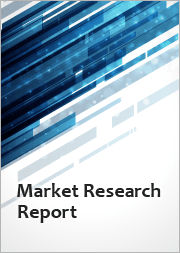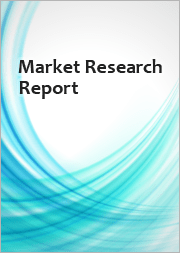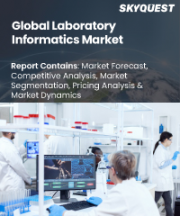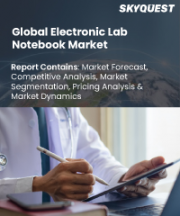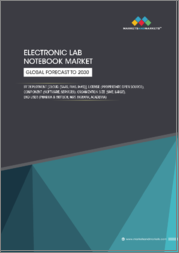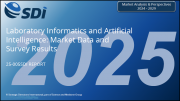
|
시장보고서
상품코드
1794013
실험실 정보학 및 인공지능(AI) : 시장 데이터와 조사 결과(2025년)Laboratory Informatics and Artificial Intelligence: Market Data and Survey Results 2025 |
||||||
소프트웨어 시스템은 일상적인 샘플 분석이든 복잡한 연구 활동이든, 실험실의 거의 모든 고급 기술, 절차 및 데이터 분석을 지원합니다. 소프트웨어가 제공하는 자동화 기능을 통해 과학자는 워크플로우를 간소화하고, 분석 매개변수를 설정하고, 규제 요구 사항을 준수하며, 데이터를 기록, 정리 및 분석할 수 있습니다. 그 존재 자체가 높은 처리량 테스트를 가능하게 하고 그 능력은 계속 확대되고 있습니다.
실험실 소프트웨어에는 여러 가지 형태가 있지만, 이 보고서에서는 세계 실험실과 다양한 엔드마켓에 편재되어 있는 것으로 알려진 첨단 기술을 엄선하여 다룹니다. 구체적으로는 실험실 정보 관리 시스템(LIMS)과 전자연구노트(ELN) 및 과학 데이터 관리 시스템(SDMS)을 포함한 관련 소프트웨어를 대상으로 합니다. 또한 실험실 크로마토그래프와 연동하도록 설계된 크로마토그래피 데이터 시스템(CDS)과 질량 분석기용으로 조정된 질량 분석 소프트웨어(MSS)도 포함됩니다. 또한 복잡한 생물학적 데이터를 수집, 분석 및 관리하는 데 도움이 되는 바이오인포매틱스 데이터베이스 도구와 화학 분야의 문제를 해결하는 데 사용되는 켐 인포매틱스 도구도 다루고 있습니다.
이전 버전의 LIMS 보고서와 비교하여 본 버전에서는 독립형 또는 애드온 AI 실험실 소프트웨어를 각 소프트웨어 유형의 AI 사용 동향과 함께 게시합니다. AI/ML 기능은 랩 환경에서 계속 진화하고 있기 때문에 이 보고서에서 제공하는 최종 사용자의 관점은 현재 및 미래의 AI/ML 기능의 통합, 인식 및 채용 동향에 초점을 맞추었습니다.
이 보고서의 목적은 정량적 시장 데이터와 1차 정보 및 2차 정보에서 얻은 정성적 인사이트를 모두 제공하는 것입니다. 따라서 LIMS/ELN/LES/SDMS, MSS, CDS, 바이오인포매틱스 및 켐 인포매틱스 소프트웨어에 대해 다음 정보를 제공합니다.
- 시장 규모(2024년)
- 지역 및 최종 시장 세분화(5년 성장률 포함, 2024년)
- 벤더 점유율 분포(2024년)
- 북미, 유럽, 아시아태평양에서 실험실 소프트웨어를 정기적으로 사용하는 210 명의 응답자의 144 개 질문 설문조사를 분석합니다. 이 설문조사는 소프트웨어 사용량, 공급업체 분포, 만족도, 주요 소프트웨어 기능의 상대적 중요도 등 지역 및 분야별 차이를 조사했습니다.
이 보고서의 유용성은 독자의 목적과 정보를 활용하는 방법에 따라 다를 수 있습니다. 그럼에도 불구하고 세분화되고 예측되는 실험실 소프트웨어 시장에 대한 상세한 판매 데이터, 공급업체 시장 점유율을 명확하게 파악하고 실험실 소프트웨어 사용자가 직면하는 정성적 선호와 과제에 대한 보다 깊은 이해를 요구하는 조직과 개인에게는 이 보고서는 귀중해야 합니다. 이 정보는 사내 시장 전망 및 단기 및 장기 마케팅 전략을 개발하는 공급업체에게 특히 유용합니다.
목차
서론
기술 개요
- LIMS, ELN/LES, SDMS 및 기타 정보과학
- CDS와 MSS
- 바이오인포매틱스, 화학정보학, AI/ML
역사적 개요
- 최근 사업활동
실험실 소프트웨어 수요
- LIMS
- CDS
- MSS
- 바이오/케미 인포매틱스
최종 사용자 관점
- 인구통계와 기본정보
- LIMS AI(현재 사용자 및 관리자)
- LIMS AI(잠재 고객)
- CDS/CDMS AI
- MSS AI
- 정보과학(바이오/화학) AI
- 연구실의 예산과 구입
- 랩 소프트웨어의 동향
부록
KTH 25.09.10Software systems underpin nearly all advanced technologies, procedures, and data analytics in laboratories-whether involved in routine sample analysis or complex research activities. The automation capabilities they provide allow scientists to streamline workflows, set analytical parameters, comply with regulatory requirements, and record, organize, and analyze data. Their very existence makes high-throughput testing possible, and their capabilities continue to expand.
While there are numerous forms of laboratory software, this report focuses on select advanced technologies known for their ubiquity in labs across the globe and across diverse end markets. Specifically, it covers laboratory information management systems (LIMS) and related software, including electronic laboratory notebooks (ELN) and scientific data management systems (SDMS). It also includes chromatography data systems (CDS), designed to work with lab chromatographs, and mass spectrometry software (MSS), tailored for mass spectrometers. Additionally, the report covers bioinformatics database tools that assist in the collection, analysis, and management of complex biological data, as well as cheminformatics tools used to solve problems in the field of chemistry.
Compared to the previous edition of the LIMS report, this edition includes standalone or add-on AI laboratory software, along with AI usage trends for each software type. AI/ML features are still evolving within the laboratory environment; therefore, the end-user perspectives provided in this report focus on current and future AI/ML feature integration, perceptions, and adoption trends.
The purpose of this report is to provide both quantitative market data and qualitative insights derived from primary and secondary sources. To that end, it offers the following information for LIMS/ELN/LES/SDMS, MSS, CDS, and bioinformatics & cheminformatics software:
- 2024 market size
- 2024 regional and end-market segmentation, including five-year growth rates
- 2024 vendor share distribution
- Analysis of a 144-question survey completed by 210 respondents who regularly use laboratory software and are located in North America, Europe, and Asia Pacific. The survey explores regional and sectoral differences in software usage, supplier distribution, satisfaction levels, the relative importance of key software features, and more.
The usefulness of this report will vary depending on the reader's goals and how they intend to apply the information. Nonetheless, it should be valuable to any organization or individual seeking in-depth sales data on the segmented and forecasted lab software market, a clearer picture of supplier market share, and a better understanding of the qualitative preferences and challenges faced by lab software users. This information is especially useful for supplier companies developing internal market outlooks and short- or long-term marketing strategies.
Table of Contents
Introduction
- Report Background
- Executive Summary
- Scope & Definitions
- Methodology
Technology Overview
- LIMS, ELN/LES, SDMS & Other Informatics
- CDS & MSS
- Bioinformatics, Cheminformatics, & AI/ML
Historical Overview
- Recent Business Activities
Laboratory Software Demand
- LIMS
- CDS
- MSS
- Bio/Cheminformatics
End User Perspectives
- Demographics & Basic Information
- LIMS +AI (Current Users & Administrators)
- LIMS +AI (Prospective Users)
- CDS/CDMS + AI
- MSS + AI
- Informatics (Bio/Chem) +AI
- Lab Budget & Purchases
- Lab Software Trends
Appendix
- End User Questionnaire
- Recent & Upcoming Reports from SDi





